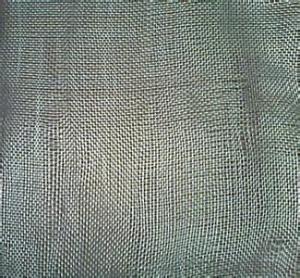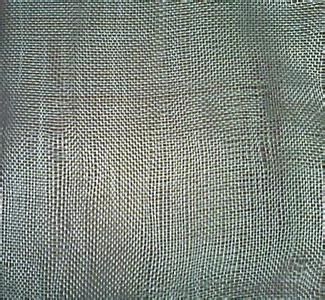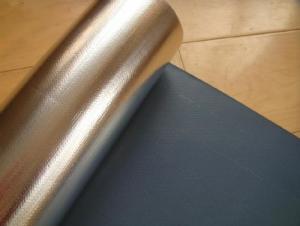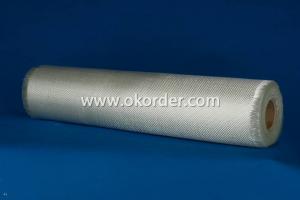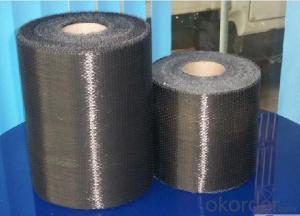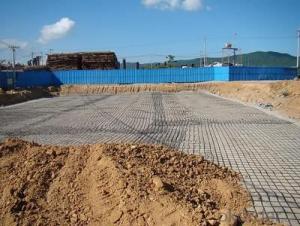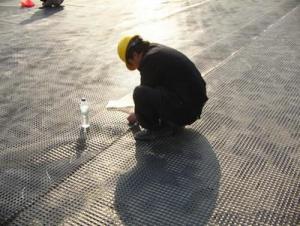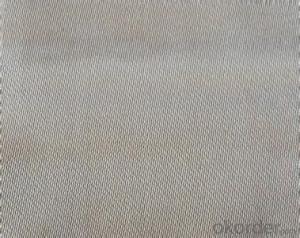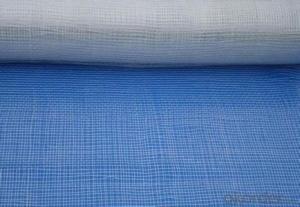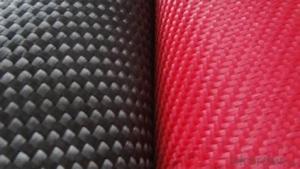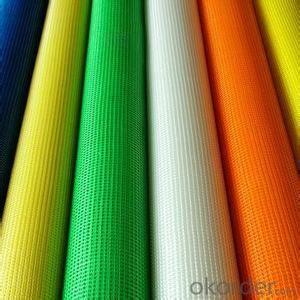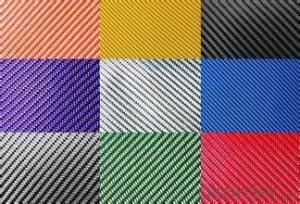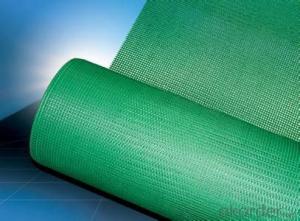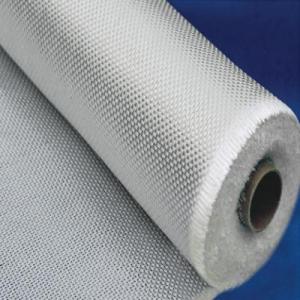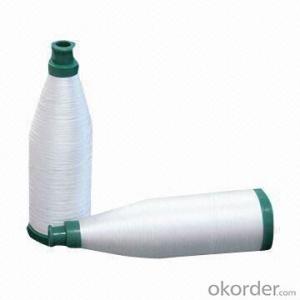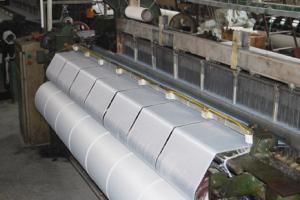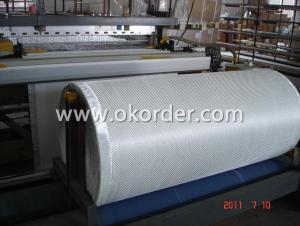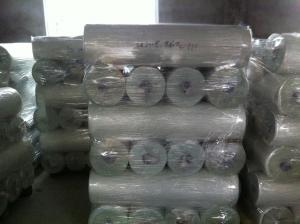Silicone Fiberglass Fabric - High Silica Cloth
- Loading Port:
- China Main Port
- Payment Terms:
- TT OR LC
- Min Order Qty:
- -
- Supply Capability:
- -
OKorder Service Pledge
OKorder Financial Service
You Might Also Like
Fiberglass silica cloth
all models are available
1. fireproof, the fire-protection rate can be achieved between B1 to A2.
2. insulation, thermal insulation, glass fiber characteristics. It has high insulation and heat-perseveration functions, which can make the indoor temperature keep constant, can greatly reduce energy loss.
3.High tensile strength.
4. waterproof, water and steam impermeable.
5. aging- resistant, the life time is very long.
6. high temperature proof. do not become deformed under the temp of 500 c.
Color can be silver, red, black and so on. According to customers' request!
Silicone is a good coating, which can make the fiberglass cloth more soft, higher tensile strengh, better fireproof.
Silica cloth is high temperature fabric used for a wide range of insulation and protection applications in industry, excellent heat resistance.
Silica cloth is a special fiberglass cloth which contains more than 96% silicon dioxide, loss on Ignition less than 10%, it can withstand continuous temperatures of 1000 D.C. for long periods of time, and instantaneous temperatures of up to 1600 D.C. The product has been used extensively in the replacement of asbestos.
Silica fabric is primarily used in hot work such as welding and burning operations. It is useful for high temperature thermal and electrical insulation in severe application environments.
- Q: Are fiberglass fabrics resistant to solvents or cleaning agents?
- Fiberglass fabrics, in general, exhibit resistance to solvents and cleaning agents. Fiberglass, a man-made material composed of delicate glass fibers, possesses remarkable chemical resistance. It maintains its structural integrity and does not deteriorate when exposed to a wide range of solvents, cleaning agents, and chemicals. For this reason, fiberglass fabrics are an optimal choice for a variety of applications requiring resistance to solvents and cleaning agents, including industrial settings, automotive components, insulation materials, and protective clothing. However, it is advisable to verify the specific chemical compatibility of the fiberglass fabric with the particular solvent or cleaning agent in question, as certain highly aggressive chemicals may still affect its performance.
- Q: How does fiberglass fabric perform in thermal conductivity?
- Fiberglass fabric has relatively low thermal conductivity, meaning it is a poor conductor of heat. This property makes it an excellent insulating material. The structure of fiberglass fabric consists of fine glass fibers, which have low thermal conductivity due to their low density and lack of metallic components. As a result, fiberglass fabric can effectively resist the transfer of heat, keeping the temperature on one side of the fabric from affecting the other side. This makes it suitable for applications where thermal insulation is required, such as in the construction of thermal blankets, oven insulation, or as a lining for industrial equipment. Additionally, the low thermal conductivity of fiberglass fabric contributes to its fire-resistant properties, as it does not readily transfer heat to ignite or support combustion. Overall, fiberglass fabric performs well in thermal conductivity by providing insulation and fire resistance.
- Q: How is fiberglass fabric printed?
- Fiberglass fabric is typically printed using a process called screen printing. In this method, a mesh screen is used to transfer ink onto the fabric, creating the desired design or pattern. The screen is prepared by blocking out areas that are not to be printed, and then ink is pushed through the screen onto the fabric using a squeegee. This allows for precise and durable printing on fiberglass fabric.
- Q: How does fiberglass fabric perform in high-altitude environments?
- Fiberglass fabric generally performs well in high-altitude environments due to its inherent properties and characteristics. High-altitude environments are characterized by low atmospheric pressure, low temperatures, strong winds, and increased exposure to ultraviolet (UV) radiation. One of the key advantages of fiberglass fabric in high-altitude environments is its excellent strength-to-weight ratio. It is known for its high tensile strength and durability, which allows it to withstand the extreme conditions found at higher altitudes. The fabric's inherent resilience and resistance to stretching or tearing makes it ideal for use in applications where reliability and longevity are crucial. Moreover, fiberglass fabric is highly resistant to temperature variations, making it suitable for high-altitude environments where temperatures can fluctuate significantly. It can withstand both low and high temperatures without significantly affecting its structural integrity. This resistance to temperature extremes ensures that the fabric remains functional and retains its mechanical properties even in cold and harsh conditions. Additionally, fiberglass fabric offers excellent resistance to UV radiation, which is more intense at higher altitudes due to reduced atmospheric filtration. The fabric's composition and manufacturing process typically include a protective coating or treatment that helps prevent degradation from prolonged exposure to sunlight. As a result, fiberglass fabric is less prone to fading, discoloration, or degradation caused by UV radiation, ensuring its longevity and performance in high-altitude environments. Furthermore, the lightweight nature of fiberglass fabric makes it ideal for use in high-altitude applications, as it helps reduce the overall weight of structures or equipment. This is especially important in industries such as aerospace or mountaineering, where weight reduction is crucial for optimizing performance and efficiency. In summary, fiberglass fabric performs admirably in high-altitude environments due to its high tensile strength, durability, resistance to temperature variations, UV radiation, and lightweight nature. These inherent properties make it a reliable and efficient choice for various applications, ranging from aircraft components and protective clothing to shelters and equipment used in extreme mountain environments.
- Q: Roof with a single group of waterproof coating and glass fiber cloth done, but the past is still in the seam water seepage, how should remediation?
- Now there are waterproof paint, not black, black is likely to be asphalt type, easy to brittle crackingNow there are chlorinated rubber class waterproof, and silicone waterproof, you buy when asked clearly type, and then mixed white cement modulation, brush more than a few times, anti cracking, waterproof prominent, can be directly built
- Q: How does fiberglass fabric handle moisture absorption?
- Fiberglass fabric has a low moisture absorption rate, making it resistant to absorbing water.
- Q: How does fiberglass fabric perform in terms of moisture absorption?
- Known for its exceptional resistance to moisture absorption, fiberglass fabric does not readily absorb water or moisture due to its non-porous and hydrophobic nature. This characteristic renders it highly suitable for situations where exposure to moisture or humidity is a concern. Moreover, the low moisture absorption of fiberglass fabric aids in preserving its structural integrity and dimensional stability, even in environments with elevated moisture levels. Consequently, fiberglass fabric's outstanding performance in terms of moisture absorption establishes it as a dependable choice across various industries and applications.
- Q: What's the difference between wall fabric and fiberglass fabric? Which is better for brushing before latex paint? Why?
- Wall fabric prices are more expensive, but the effect is good, suitable for private home improvement
- Q: Can fiberglass fabric be used for making soundproofing materials?
- Fiberglass fabric is capable of being utilized in the production of soundproofing materials. Its high density and capacity to absorb sound waves make it an exceptional material for sound insulation. When applied as a fabric, it can either be layered or wrapped around surfaces to effectively decrease noise transmission. In the construction industry, fiberglass fabric is frequently used to construct sound barriers in walls, ceilings, and floors. Moreover, it is employed in the automotive and aerospace sectors to minimize noise pollution. The fabric's ability to capture and absorb sound waves renders it an excellent choice for soundproofing materials. It is worth mentioning, however, that achieving optimal soundproofing outcomes may necessitate proper installation and the addition of supplementary layers.
- Q: What is fiberglass sound absorption board?
- Glass wool belongs to a kind of glass fiber, it is a kind of man-made inorganic fiber.
Send your message to us
Silicone Fiberglass Fabric - High Silica Cloth
- Loading Port:
- China Main Port
- Payment Terms:
- TT OR LC
- Min Order Qty:
- -
- Supply Capability:
- -
OKorder Service Pledge
OKorder Financial Service
Similar products
Hot products
Hot Searches
Related keywords
